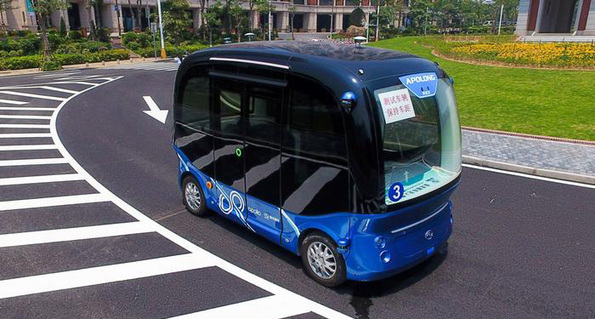This week, Volkswagen announced a new, all-electric, zero-emission car-sharing platform called “We” that will launch next year, PSA Groupe revealed a car-sharing service coming to Paris under its Free2Move brand this year, and Volvo and Renault detailed their mobility platforms.
Further east, China’s Baidu—like Google, a search engine with a variety of AI-powered ventures including autonomous driving tech— joined the fray by showcasing its mobility developments with partners.
At the “Baidu: Create” AI developers conference in Beijing, Baidu showed the fruits of its partnership with King Long, the country’s second-largest bus maker—Apolong self-driving buses that could hit the road in Japan as early as next year, and even sooner in some Chinese cities.
On Wednesday the 100th self-driving Apolong mini-bus rolled off the production line to an audience of developers, journalists, executives and officials.
Powered by Baidu’s Apollo 3.0 platform, the 14-seaters meet U.S. standards for “Level 4” autonomous driving capabilities, so no driver is necessary within specific geographic settings.
Each Apolong vehicle, about one-third of the size of a normal bus, has no steering wheel, driver’s seat, accelerator or brake.
Baidu operates China’s leading search engine, but also invests heavily in services ranging from online payments to connected devices and artificial intelligence used in autonomous cars and beyond.
“In the past, China exported cheap commodities to the world,” Baidu CEO Robin Li stated. “In the future, Chine will export AI technology.”
Sourced through Scoop.it from: www.brandchannel.com



Leave A Comment